Agentic AI differs from regular AI because it can learn, adapt, and make autonomous decisions, while regular AI only follows predefined instructions.
- AI CoE
- Case Studies
- Services
Incubating a culture of innovation & creativity
AI & MLCloud & DevSecOpsIoT & Custom SoftwareMobile AppWeb & BackendDesign & ConsultingEnterprise Solution- Artificial IntelligenceInnovating businesses with digital technologies
- Agentic AIElevate your experience with AI services
- GEN AIUnleashing a New Era of Innovation
- AI AutomationStreamline workflows with intelligent automation
- AI Consulting ServicesStrategic guidance for AI transformation
- AI Infrastructure ManagementScalable systems powering AI operations
- Conversational AIIntelligent chatbots that understand context
- Enterprise AIOrganization-wide intelligent business solutions
- ML Application DevelopmentAutomating processes for increased efficiency
- Natural Language ProcessingAdvanced NLP solutions for enterprises
- Retrieval Augmented GenerationEnhancing LLMs with external knowledge
- Custom LLM DevelopmentPrecision LLM development for enterprises
- ChatBot DevelopmentHandling multiple queries simultaneously
- Data AnalyticsTransforming raw data into insights
- Business IntelligenceVisualizing trends for better forecasting
- DevSecOpsEnhance both speed and security in your software delivery with our DevSecOps
- Cloud EngineeringMigrating legacy apps for scalability
- AWS ConsultingMaximize AWS resource utilization
- Cloud MigrationTransitioning infrastructure to cloud
- Azure ConsultingAchieving compliance with Azure frameworks
- Cloud ConsultingConsulting to boost cloud efficiency
- DevOps ConsultingHolistic approach to development practices
- Microservices DevelopmentBuilding scalable apps for large organizations
- MLOpsStreamlined model development processes
- Serverless Application DevelopmentEliminate server management hassles
- Cloud App DevelopmentFlexible resources for dynamic demands.
- CybersecurityComprehensive cybersecurity services to defend against threats and maintain trust.
- Custom Software DevelopmentTailored Solutions for Your Business Needs
- Internet of ThingsConnecting devices for smarter operations
- Industrial IoT DevelopmentTech-driven industrial innovation
- AIoT App DevelopmentTech-driven industrial innovation
- Smart TV App DevelopmentDeveloping interactive apps for smart TVs
- Wearable App DevelopmentCreating intuitive apps for wearable devices
- Cloud IoT DevelopmentBuilding scalable IoT solutions on cloud platforms
- OTT DevelopmentDelivering premium content over the internet
- Mobile App DevelopmentCrafting versatile mobile apps.
- Native App DevelopmentDelivering seamless user experiences
- Cross Platform App DevelopmentDeveloping apps for multiple platforms
- React Native App DevelopmentCreating interactive apps with React
- Flutter App DevelopmentCrafting fast, beautiful apps
- iOS App DevelopmentLeveraging iOS features for innovation
- Android App DevelopmentLeveraging Android flexibility for innovation
- React Js DevelopmentDeveloping modern web apps with React.js
- Next Js DevelopmentCreating robust web apps with Next.js
- Node Js DevelopmentCreating fast, scalable server-side applications
- Web App DevelopmentCrafting Innovative Web Solutions.
- .Net MAUI DevelopmentCross-platform apps with a single codebase
- Python DevelopmentBuilding versatile applications with Python
- Progressive App DevelopmentTransforming websites into engaging PWAs
- Backend DevelopmentArchitecting scalable, secure server solutions
- User Experience DesignCrafting intuitive and engaging digital experiences
- Customer ExperienceEnsuring seamless and memorable experiences
- Mobile App ConsultingProviding expert guidance on mobile app strategies
- Quality Assurance & TestingDetecting and preventing defects to enhance reliability
- Application MaintenanceOptimizing efficiency and minimizing downtime
- Agile ConsultingImproving collaboration, transparency, and flexibility in teams
- Digital TransformationBuilding scalable IoT solutions on cloud platforms
- Enterprise App DevelopmentBuilding scalable apps for large organizations
- Low Code Application DevelopmentAccelerating development with minimal coding
- SaaS Application DevelopmentEnhancing collaboration via cloud platforms
- Legacy ModernizationMigrating legacy apps for scalability
- Super App DevelopmentMulti-services in one platform
- Streaming App DevelopmentLive broadcasting capabilities for events
- API DevelopmentProviding access to third-party services
- B2B App DevelopmentConnecting businesses with seamless integration
- CMS DevelopmentMulti-user access for collaborative editing
- Power Apps DevelopmentIntegrate easily with Microsoft ecosystem
- Guidewire App DevelopmentTailoring insurance apps with Guidewire
- Blockchain DevelopmentAccelerate digital transformation with secure, scalable blockchain solutions
- Microsoft Fabric ConsultingData strategy, implementation, and ongoing support to maximize your data’s value.
Engagement ModelsFlexible Partnerships. Predictable Outcomes. - Industries
Uncover the transformative potential of digital and mobile solutions for your industry
- Insights
- About
- Contact Us
Agentic AI Development Company
Intelligent AI systems that independently orchestrate workflows, solve dynamic challenges,
and accelerate your enterprise digital transformation.
























Explore TechAhead’s Agentic AI Services for Your Business
Intelligent AI systems that independently orchestrate workflows, solve dynamic challenges, accelerating your enterprise digital transformation.
Agentic AI Consulting
Collaborative workshops that translate your business KPIs into agent objectives, data requirements, and a phased rollout plan with clear ROI milestones.
Custom Agentic AI Development
Bespoke autonomous agents that handle domain-specific tasks, everything from triaging support tickets to reconciling trades while fitting seamlessly into your stack.
Enterprise Agent Mesh Architecture
A resilient network of specialized agents that collaborate, delegate, and recover from failure, so critical workflows never stall.
Multi-Agent Orchestration
Intelligent planners and executors that break big goals into parallel subtasks, then recombine results in minutes instead of days.
Conversational AI Agents
Natural language assistants that pull real-time data from your systems, resolve issues, and escalate only when human expertise is needed.
Agent Assurance & Guardrails
A continuous evaluation and safety layer that keeps agents accurate, compliant, and cost-efficient. No hallucinations, no surprises.

Download this whitepaper to break down the macro and micro whys and the hows of enterprises transitioning from reactive models to autonomous, goal-driven systems, unlocking faster decision-making, reduced human dependency, and positive business impact.
What are the Benefits of Agentic AI Services?
How Does Agentic AI Help Businesses Achieve Operational Excellence?
Our custom Agentic AI services deliver autonomous, goal-oriented solutions that revolutionise decision-making and workflow execution. Enterprise-grade intelligent agents help you achieve operational efficiency.

Autonomous Decision-Making
- Intelligent agents independently analyze complex scenarios, make contextual decisions, and execute multi-step workflows without constant human oversight.
- Self-monitoring AI agents detect system anomalies, troubleshoot issues, and autonomously implement corrective actions.
Goal-Oriented Execution
- Agentic AI systems break down complex business objectives into actionable tasks, dynamically adjusting strategies based on real-time feedback and changing market conditions.
- Advanced reasoning capabilities allow agents to navigate ambiguous situations and explore multiple solution paths.
Adaptive Learning & Continuous Improvement
- Self-learning agents evolve through interaction, refining their decision-making frameworks based on outcomes, user feedback, and environmental changes.
- Memory-enabled AI agents maintain context across interactions, building institutional knowledge that compounds over time.
Enterprise-Grade Security
- ISO 42001 certified development processes, with AI governance frameworks, ensure agents operate within defined ethical boundaries, with audit trails for every autonomous decision and action.
- Zero-trust architecture with encrypted agent-to-agent communication, granular permission controls, and compliance monitoring ensures adherence to GDPR, CCPA, HIPAA, and SOC 2 standards across all autonomous operations.
Turn Your Idea Into an AI Smart Mobile Product.
Connect with Our Experts Today to Architect a Next-Generation App Strategy.
Trusted By
Empowering Global Brands and Startups to Drive Innovation and Success with our Expertise and Commitment to Excellence
Case Studies
Exploring success stories
Here’s a glimpse of our Agentic AI Development Company success stories. Find out how we inspire growth-focused organizations and
empower them with Digital & Mobile leadership.
- Cloud Engineering
- Mobile App
- UX/UI Design
ERIN Employee Referral Software
TRANSFORMING TALENT ACQUISITION
CHALLENGE
Organizations faced significant hurdles in managing employee referral programs effectively. Manual tracking of referrals was time-consuming and inefficient, with HR teams spending countless hours entering data into backend systems. Companies struggled with low employee participation rates, limited visibility into referral program performance, and difficulty automating bonus payments and eligibility checks.
SOLUTION
We developed ERIN, an employee referral software platform that revolutionizes how organizations leverage their workforce for talent acquisition. The solution features a cross-platform experience accessible via web browsers and native mobile apps. The platform has transformed into a smart, agentic AI-driven referral engine that proactively assists employees and HR teams with personalized, automated hiring workflows.
IMPACT
- 2.2M+ Employee Referrals Submitted
- 1.1M+ Referrals Processed in 2024 Alone
- 146,689 Successful Hires Made
- 500M+ Referral Bonuses Paid
- AI
- ClimateTech
- IoT
- Mobile App
IMI Heatmiser
Transforming Heating Control with IoT & Minimal Design
CHALLENGE
The existing mobile application suffered from complicated navigation, information overload, poor user experience, decreased engagement, confusing interface layers, and declining user adoption of their heating control system.
SOLUTION
Built agentic AI–enabled mobile apps using Swift and Java with Python APIs, deployed on AWS. Used RabbitMQ and Redis for real-time orchestration. Integrated with Google Home, Apple HomeKit, Alexa, and IFTTT. Applied agentic AI and human-centric UX to streamline controls, personalize temperature profiles, automate schedules, and optimize room-level heating management across devices and environments efficiently.
IMPACT
- 32 Heating Zones Controlled per Home
- 15x Increase in User Engagement After Redesign
- 50% Reduction in Energy Consumption
- 4.8★ Average App Store Rating
- Mobile App
- Website Development
- Statistical Analysis
Unchecked Fitness
Connecting GenAI to Wellness
CHALLENGE
Unchecked Fitness aimed to redefine how users approach health and training through intelligent, adaptive experiences. The challenge was to create a personalized fitness platform powered by AI that can learn user behavior, dynamically optimize workouts and nutrition, and drive measurable fitness outcomes.
SOLUTION
We built an agentic AI-powered fitness platform that personalizes nutrition and workouts, offers frictionless navigation, effortless browsing, and real-time progress tracking. By integrating autonomous AI agents through GPT APIs, the app delivers conversational guidance and adaptive recommendations, providing intelligent, data-driven insights for a more engaging, personalized fitness journey that motivates users through continuous AI-driven support.
IMPACT
- 85%+ Increase in User Retention with AI-Driven Personalization
- 12× Boost in Daily Active Users through Intelligent Recommendations
- 60% Faster Workout and Nutrition Tracking Experience
- 4.9★ Average App Store Rating Across Platforms
- Mobile App
- Website Development
- Statistical Analysis
JLL
REAL-TIME BUILDING MANAGEMENT INTELLIGENCE
CHALLENGE
Field technicians struggled to quickly access critical building equipment data. The system needed to handle complex, unstructured information from multiple IoT sensors, understand varied user queries, and deliver instant insights while maintaining strict security protocols based on user roles and permissions.
SOLUTION
We built an intelligent system that combines Generative AI and NLP to transform how technicians interact with building data. Our agentic AI framework processes IoT sensor streams in real-time, and LLM-powered interfaces let users understand maintenance needs and diagnostics.
IMPACT
- 30% Decrease in Equipment Downtime
- 20% eduction in Energy Consumption
- $10M Saved Annually, Reducing Cost of Maintenance
- 5.4B Square Feet of Properties Monitored in Real Time
- Mobile App
- Website Development
- Statistical Analysis
Headlyne.ai
AI-DRIVEN NEWS PERSONALIZATION PLATFORM
CHALLENGE
The challenges included avoiding information overload, filtering positive news using accurate sentiment analysis, curating age-appropriate content for Junior Mode, and delivering personalized news experiences while maintaining cross-platform consistency and real-time processing.
SOLUTION
We developed an AI-powered news platform using advanced NLP algorithms for intelligent article summarization and sentiment analysis. Our Gen AI solution integrated LLM-based content curation, machine learning models for positive news filtering, and natural language processing for age-appropriate selection, built on Flutter and Node.js for seamless real-time performance.
IMPACT
- 40% Engagement Boosts
- 25% Higher Satisfaction
- 34% More Downloads
- 70% Positive Content Discovery
Proven Business Efficiency
What Makes Agentic AI a Strategic Investment for Businesses?
Organizations implementing agentic AI report up to 10X increases in productivity and 5X improvements in operational efficiency, reducing costs while boosting service speed, quality, and scalability.
Massive Market Potential
Agentic AI is rapidly expanding, with a current valuation of over $5.2B and an expected market size of $196.6 by 2034, signaling an enormous global opportunity.
Strong Growth Indicators
With a 43.8% growth rate, agentic AI is on track for 33% enterprise adoption by 2028 and for 11.6 million active U.S. users to emerge soon.
Efficiency Gains
Companies using agentic AI report a 10X productivity boost and 5X greater efficiency, making it a game-changing technology for operational speed, quality, and automation.
Widespread Executive Trust
Surveys show over 70% of global executives believe agentic AI will replace legacy rule-based systems and processes across industries within the next three years.
High ROI in Real-World Use
Smart city implementations of agentic AI have reduced traffic congestion by 20% and energy consumption by 30%, delivering strong returns through automation and insights.
Our Roadmap
Our Proven Custom Agentic AI Development Roadmap
We help you transform complex business processes into autonomous intelligent systems through strategic Agentic AI that operates independently and adapts continuously.
Strategy
-
What We Do: Define autonomous agent objectives, select reasoning frameworks, establish decision boundaries, plan multi-agent architecture, and set milestones.What You Get: Clear Agentic AI roadmap, transparent ROI forecasts, compliant autonomy governance, optimized resource allocation.
Model Design
-
What We Do: Design agent memory systems, architect tool-calling pipelines, establish knowledge graphs, and define reasoning patterns.What You Get: Secure agent memory, reasoning architecture, compliant data governance, and scalable memory systems.
Development & Integration
-
What We Do: Build autonomous agents, develop decision-making frameworks, create tool integration layers, and implement multi-agent orchestration.What You Get: Production-ready Agentic AI solutions, seamless enterprise integrations, intelligent decision-making workflows, and autonomous task execution.
Model Training
-
What We Do: Train reasoning capabilities, optimize decision-making patterns, validate agent behaviors, and establish learning loops.What You Get: Domain-specific intelligent agents, accurate autonomous decisions, reduced error rates, optimized reasoning efficiency.
Quality Assurance
-
What We Do: Execute agentic testing, including decision validation, safety assessments, behavior verification, security audits, compliance checks, and edge-case testing.What You Get: Reliable agent decisions, ethical AI compliance, validated autonomous behaviors, and secure agent operations.
Deployment & Support
-
What We Do: Deploy agent infrastructure, implement decision monitoring, establish human-in-the-loop protocols, optimize costs, and provide agent updates.What You Get: Live enterprise Agentic AI systems, real-time decision analytics, cost-optimized operations, and continuous agent improvements.
GAIN A COMPETITIVE EDGE
Why Partner with TechAhead for Agentic AI Services?
Unlock Agentic AI potential with TechAhead. We provide expert consulting and development for intelligent, autonomous solutions that transform your business.

Who Builds Your Custom Agentic AI Solutions at TechAhead?
We have specialized in-house agentic AI engineers, multi-agent system architects, and autonomous workflow experts who understand your enterprise challenges and develop intelligent agent-powered solutions that autonomously execute complex business processes.
How Does TechAhead Ensure Scalability for Agentic AI Systems?
Our agentic AI architectures feature enterprise-grade scalability, seamlessly orchestrating multiple autonomous agents handling concurrent tasks and millions of interactions daily. These agents maintain consistent performance and intelligent decision-making as your operations expand.
How Do We Guarantee Agent Reliability?
We implement advanced agent coordination protocols, reasoning frameworks, and continuous learning mechanisms to ensure your agentic AI systems deliver autonomous decision-making and adaptive responses to dynamic business scenarios.
What Makes Our Agentic AI Development Approach Different?
Our agile, agentic AI methodology features iterative agent training, goal-oriented planning systems, and continuous performance optimization, delivering autonomous agents with adaptive reasoning and self-improving workflows aligned with your strategic goals.
How Does TechAhead Ensure Data Security?
Ensuring Trust Through Rigorous Compliance
At TechAhead, we build mobile apps that are not only feature-rich and scalable —
they’re built with compliance, security, and regulatory integrity baked in.
GDPR
CCPA
DPDP Act, 2023
PIPEDA
PCI DSS
Tokenization
3D Secure
PSD2 / SCA
ISO/IEC 27001
OWASP Mobile Top 10
Secure Coding
Continuous Auditing
Apple App Store Review
Google Play Developer Policy
Mobile Accessibility (WCAG)
HIPAA
FINRA / SEC
COPPA
FCC / Telecomm
Technologies We Leverage
Our Advanced Agentic AI Development Technology Stack
We use robust, modern tools to build Agentic AI apps that work well and grow with your business. Our technology enables us to create reliable apps that keep users engaged and support your business goals.








































What Are the Latest Agentic AI Trends?
The Rise of Multi-Agent Systems and Hybrid Architectures
The latest forecasts, data, and strategic insights you need to outpace the competition by 2030.


Everyday AI for Exceptional User Experiences

Transform Your Business Operations with Intelligent Automation
We embed agentic AI, autonomous reasoning, and multi-agent orchestration capabilities directly into your enterprise workflows. From intelligent decision-making to automated task execution, we develop agentic AI solutions that drive measurable business outcomes and operational excellence.

- Agentic AI Consulting
- AI Agent Integration & Modernization
- Autonomous AI Agent Development
- Context-Aware Decision Orchestration
- Advanced Multi-Agent Analytics Systems
VOICES OF SUCCESS
Why The World Trusts TechAhead
Real feedback, authentic stories- explore how TechAhead’s solutions have driven
measurable results and lasting partnerships.





Industries We Focus On
Specialized Agentic AI Solutions Designed for Regulated Industries
With deep knowledge in various industries, TechAhead speeds up your Agentic AI development journey. Our skilled team leverages specialized insights and proven strategies to craft custom Agentic AI solutions tailored to your specific challenges. We ensure a smooth, effective app development process, helping you lead your market and adapt swiftly to changes.
WHAT WE DO
We don’t just follow trends, we analyze your unique data and challenges, then craft data-driven solutions that deliver quantifiable results.
From building secure and scalable cloud platforms for Fortune 500 companies to developing award-winning mobile apps with AI-powered features, as a leading mobile app development agency, we’re your all-in-one innovation partner for digital excellence.
AI & ML
- Artificial Intelligence
- Agentic AI
- GEN AI
- AI Automation
- AI Consulting Services
- AI Infrastructure Management
- Conversational AI
- Enterprise AI
- ML Application Development
- Natural Language Processing
- Retrieval Augmented Generation
- Custom LLM Development
- ChatBot Development
- Data Analytics
- Business Intelligence
Cloud & DevSecOps
Custom Software
Mobile App
Web & Backend
Design & Consulting
Enterprise Solutions
- Digital Transformation
- Enterprise App Development
- Low Code Application Development
- SaaS Application Development
- Legacy Modernization
- Super App Development
- Streaming App Development
- API Development
- B2B App Development
- CMS Development
- Power Apps Development
- Guidewire App Development
- Blockchain Development
- Microsoft Fabric Consulting
FEATURED AWARDS
For over 16 years, we've been pioneering
innovation with award-winning Mobile, Web,
Cloud, IoT, and AI services
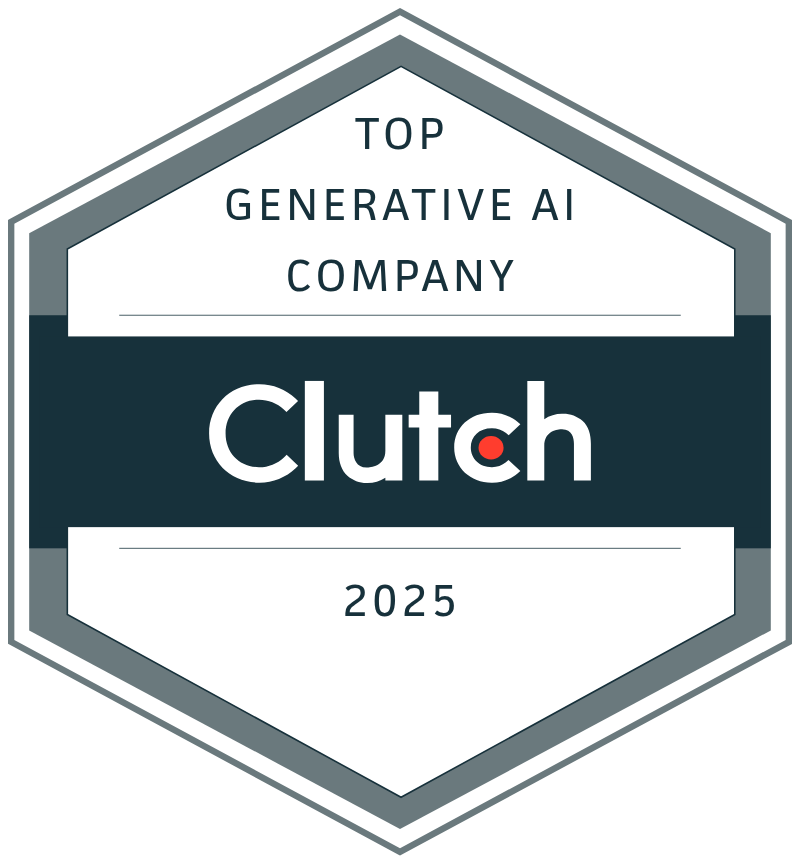
Top Generative AI Company
Award by Clutch for the Top Generative AI Company
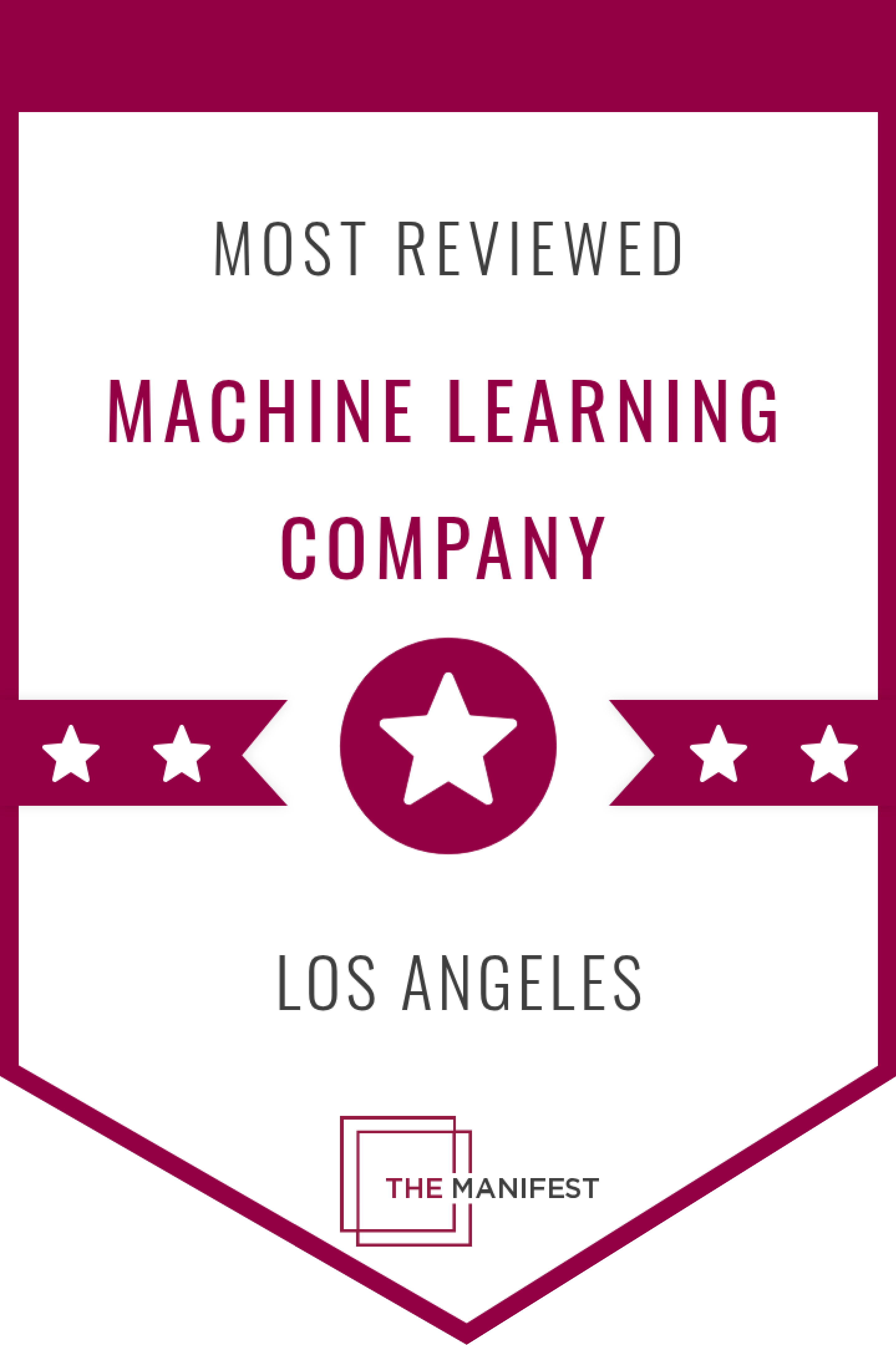
Most Reviewed Machine Learning Company in Los Angeles
Award by The Manifest for the Most Reviewed Machine Learning Company in Los Angeles

Most Reviewed Artificial Intelligence Company in Los Angeles
Award by The Manifest for the Most Reviewed Artificial Intelligence Company in Los Angeles

Most Reviewed Artificial Intelligence Company in India
Award by The Manifest for the Most Reviewed Artificial Intelligence Company in India
Top App Development Company
Award by Clutch for Top App Developers
Top Health & Wellness App Developers
Award by Clutch for the Top Health & Wellness App Developers
Top Cross-Platform App Developers
Award by Clutch for the Top Cross-Platform App Developers
Top Consumer App Developers
Award by Clutch for the Top Consumer App Developers

The Webby Award Honoree 2024
Honoree for App Features: Experimental & Innovation
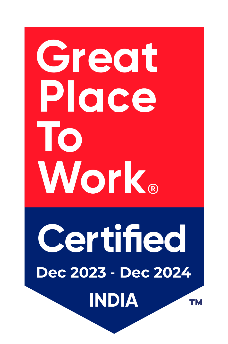
Great Place To Work Certified
Awarded as a Great Place to Work for our thriving culture

Top 100 Global by Red Herring
Recognised by Red Herring among the Top 100 Companies
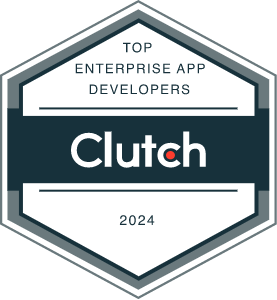
Top Enterprise App Developers
Award by Clutch for Top Enterprise App Developers
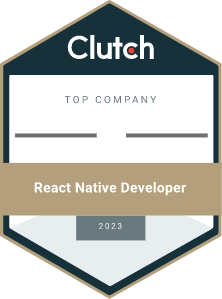
Top React Native Development Company
Award by Clutch for Top React Native Developers
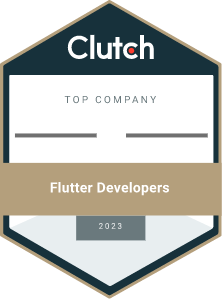
Top Flutter Development Company
Award by Clutch for Top Flutter Developers
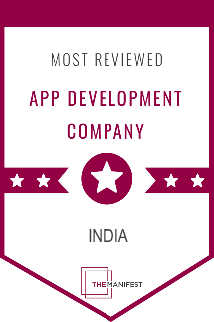
Most Reviewed App Development Company
Award by Manifest for the Most Number of Client Reviews

Corporate Sponsor of the Year 2019
Awarded by Greater Conejo Valley Chamber of Commerce
Ready to Build the Intelligent
App of the Future?
Schedule a Complimentary Consultation to Discuss
AI Integration and Project Roadmap with Our Tech Leaders.
Frequently Asked Questions
- General
General
What is the difference between Agentic AI and regular AI?
What types of Agentic AI agents does TechAhead build?
TechAhead builds sales, support, HR, finance, campaign, and workflow automation agents that integrate with existing systems to boost productivity.
Can Agentic AI agents integrate with existing business tools?
Yes. Agentic AI agents integrate with CRMs, ERPs, helpdesks, and enterprise platforms using APIs and connectors for unified operations.
What is the timeline to develop a custom AI agent?
Simple AI agents can be built in a few weeks, while complex enterprise agents may take 4–6 weeks for full development and testing.
What is the cost of developing Agentic AI solutions?
The cost of developing Agentic AI varies by scope. Pilot projects may cost $50k–$100k, while enterprise-scale solutions can cost $200k or more.
Which platforms can Agentic AI agents integrate with?
Agentic AI agents integrate with Salesforce, Zendesk, HubSpot, Teams, Slack, Google Workspace, Workday, SAP, and more.
How is Agentic AI different from RPA or chatbots?
Agentic AI agents plan, reason, and execute multistep tasks autonomously, unlike RPA bots or chatbots, which follow rigid flows.
How does TechAhead ensure security and compliance for Agentic AI agents?
TechAhead ensures security with encryption, RBAC, audit logging, and compliance with SOC 2, HIPAA, GDPR, and ISO 27001.
Where is TechAhead's Agentic AI development team located, and do you serve global clients?
TechAhead operates from three strategic locations: USA (Agoura Hills, California), India (Noida), and UAE (Dubai). We serve global enterprises across North America, Europe, Middle East, Asia-Pacific, and Australia with 24/7 support and dedicated teams ensuring continuous development cycles.
How does TechAhead's Agentic AI development process work from consultation to deployment?
We start with discovery workshops to map automation opportunities, define agent objectives, and create phased roadmaps. Next, we architect multi-agent systems, establish reasoning frameworks, and plan integrations for your approval. Development runs in agile 2-week sprints with bi-weekly demos where you test agent behaviors and provide feedback. We integrate with your CRM, ERP, and databases via secure APIs. Agents train on your domain data with performance metrics shared at each milestone. Testing includes decision validation, safety assessments, and security audits with your UAT participation. Launch includes cloud or on-premise deployment, monitoring dashboards, documentation, team training, and 24/7 support.
RELATED BLOGS
Explore Our Insightful Blogs on
Agentic AI Development Services

The Multi-Agent Reality Check: 7 Failure Modes When Pilots Hit Production
January 13, 2026 | 153 Views
CTO

The Rise of Edge AI in Manufacturing: Enterprise Trends for 2026
January 7, 2026 | 232 Views
Associate Director, Pre Sales
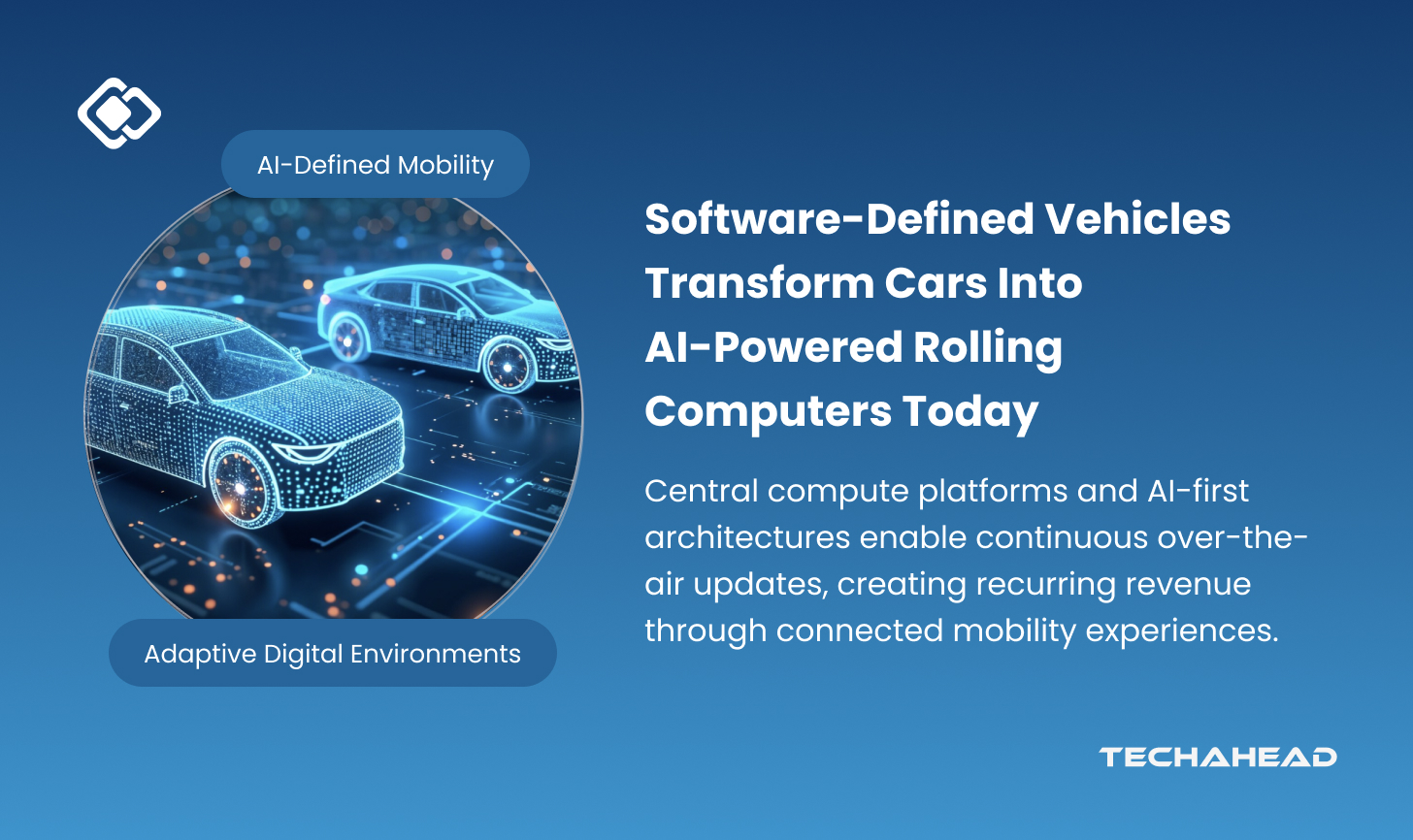
Beyond Electric: Why Software-Defined, AI-First Architectures Are the Real Future of Automotive
December 29, 2025 | 274 Views
CTO
Future Trends in Agentic AI Development Services
The most successful companies of 2030 are being built today with agentic AI at their core. It is a transformational shift in how work gets done. We are not talking about better chatbots or smarter spreadsheets; we are witnessing the birth of self-managing businesses with multiple agents and hyper-automated models that collaborate closely with human agents.
Multi-Agent Ecosystems
The next big wave in AI will be multi-agent ecosystems, where multiple AI agents work together. Instead of siloed bots, you can consult with an agentic AI development company to develop a multi-agent framework for better collaboration across departments. From logistics to customer service, you can automate many workflows to improve efficiency. For enterprise leaders, it means enhanced accuracy and responsiveness.
Hyperautomation that Adapts to Your Business
Agentic AI development is taking automation to new heights; now, bots are no longer limited by fixed rules; instead, they adapt to a dynamic environment in real time. These AI agents automatically adjust workflows and learn from outcomes through hyperautomation, thereby improving your business's agility.
Industry-Specific and Expert AI Agents
We are already seeing a rise in domain-specific agents tailored for industries like healthcare, finance, or manufacturing. These agents bring deep industry knowledge for highly specialized tasks like compliance, patient care coordination, fraud detection and many others. In this way, you can automate complex workflows, expecting better accuracy.
Seamless Scaling and Integration
The days of building separate AI systems are over. In 2025, 70% of organizations operationalize AI designed for autonomy. Like your phone apps, they share data and work as one ecosystem. Future agentic AI will plug into your existing business systems without massive investment or maintenance. Moreover, multi-agent collaboration helps you scale your system as your business grows.
Edge AI and Real-World Autonomy
Robotics is undergoing a transformation with edge AI. It allows offline operations that enhance autonomy, especially in manufacturing and logistics. Instead of everything running in the cloud, AI is moving directly onto devices: your factory robots, delivery drones, and smart cameras. It is like giving each device its own brain. You can expect faster responses, better privacy that keeps working even when the internet goes down.
Self-Healing, Self-Improving Systems
Future agentic AI platforms will be able to detect and correct their own errors. As a result, they are low-maintenance solutions that continuously optimize their own performance without human intervention. Besides that, future agentic AI development also minimizes downtime and increases reliability.
Plug-and-Play Agent Marketplaces
A major trend is the emergence of agent marketplaces. Think of it as an app store for AI: you can browse, select, and deploy pre-built or specialized agents tailored to your needs. No need for heavy, custom engineering. Such a marketplace makes enterprise-grade AI accessible and easy to integrate into your system.


